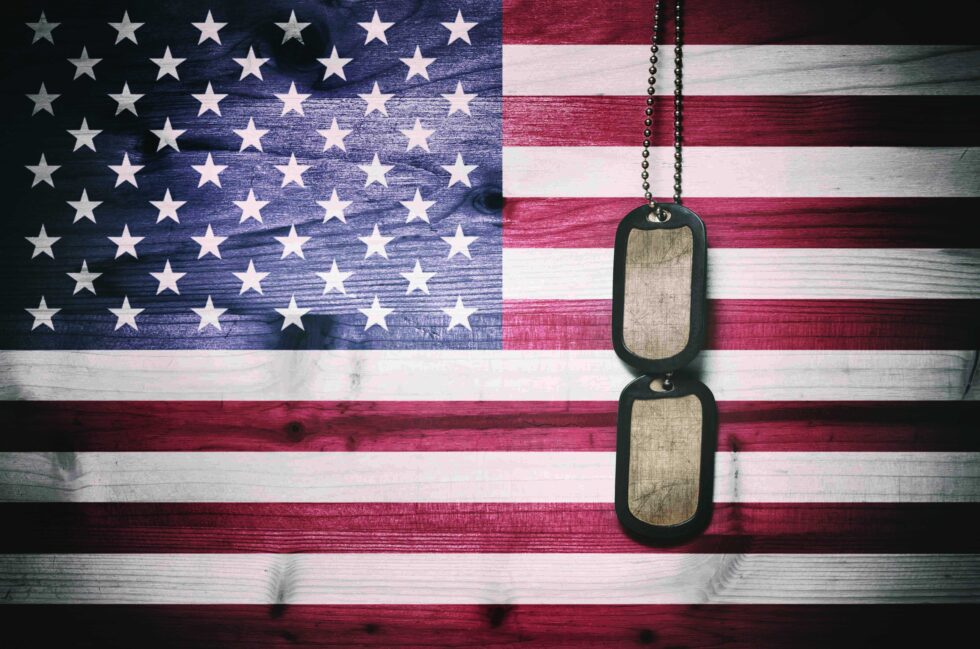
By Rev. Dr. Mark J. Schreiber
CAPTAIN, CHAPLAIN, USN (Ret.)
War is a toxic stew to the conscience. The taste lingers for a lifetime and every Vet knows it. About 15 years ago, the Veteran’s Administration (VA) coined a new phrase to describe the unique phenomenon that many Vets returning from the Iraq and Afghanistan wars were experiencing post-combat. Not only were our servicemen and women suffering from PTSD, but a related arena of guilt and debilitating shame, called moral injury (MI) was identified.
MI can linger long within the conscience of the veteran for years post-combat like a corrosive poison causing much harm to family relationships, to self, to society, and the workplace. All Vets from all of America’s foreign wars are susceptible to MI. What is moral injury?
“‘Moral injury’ is a term used to describe a syndrome of shame, self-handicapping, anger, and demoralization that occurs when deeply held beliefs and expectations about moral and ethical conduct are transgressed. It is distinct from a life threat insofar as it is also not inherently fear-based; rather, during war, moral injury can arise from killing, perpetration of violence, betrayals of trust in leaders, witnessing depraved behavior, or failing to prevent serious unethical acts,” according to “Adaptive Disclosure.”
Moral injury may be new to the VA, but to the church, MI has been understood and confronted for the past 2,000 years. In plain English, it’s called a guilty conscience, and the church has the answer.
A guilty conscience can have a long shelf-life in the personal history of any veteran who has fought and served God and country. Why? Why does combat put our SSAMs (“Soldiers, Sailors, Airmen, and Marines” both male and female) at risk for moral injury? Simply put, God has placed in every human soul two recognizable entities: natural law and conscience.
Every human being—whether or not they go to church, believe in God, proclaim to be an atheist, or cling to some non-Christian pagan religion—has implanted in their soul a basic sense of right and wrong and a conscience that will hold the person to that norm. The conscience is a congenital gift of God for the entire human race (ref. Romans 2:14-16 NKJV). In addition, God has given to every legitimate government of this world the power of the sword to keep the peace and wage war. We live under two kingdoms, the kingdom of power and the kingdom of grace. The kingdom of power is held together by force; the kingdom of grace by the power of Christ’s cross for forgiveness and eternal life (ref. Romans 13:1-7 NKJV).
That means that legitimate governments can enter war for a just cause and legitimatize lawful killing. Combat is lawful killing, yet implanted in every soul is the command, “Thou shalt not kill.” How does this square with the conscience of the warfighter? How does the warfighter discern between lawful killing in war and excessive, unnecessary violence and murder?
Our warfighters are trained to fight according to the warrior’s code, according to “Nailed!.” The code is meant to keep our warfighters human as they fight to the highest ideals of selflessness in battle, suffering for a greater good, and even embracing death with honor. The warrior’s code is the lens through which the warfighter views the world and is monitored by the warfighter’s conscience.
Herein lies the problem. There is no perfect warfighter. Things go wrong in war quickly. Overwhelming guilt and believable scenarios can flood the warfighter’s soul, such as failing to act quickly enough to save their buddy’s life, witnessing horrific acts of brutality that they failed to stop, surviving the battle while most of their comrades in arms did not, and trusting leadership which miserably failed them. The journey home after combat can be riddled with maladaptive cognitions, rage, anger, uncontrollable mental intrusions, and heavy black clouds of depression. A guilty conscience has a long shelf-life. Some Vets never make it home.
A major emphasis in VA counseling seeks to reframe the battlefield experience in order to give the combat veteran a new perspective and to relieve the burden of perpetual responsibility for things that were out of their control.
One promising VA counseling method (ref. “Adaptive Disclosure”) utilized in the counseling session engages the veteran to imagine a benevolent non-judgmental third party (father, mother, brother, sister) who will offer imaginary forgiveness by which they hope the veteran can learn to forgive themselves (ref. “Imaginary Forgiveness” in “Nailed!”).
Does it work? Yes, to a certain degree, but the VA is not a counselor of conscience before God, rather, the VA is seeking to alleviate the immediate mental suffering of guilt from war. The church, on the other hand, asserts that only the cross of Christ provides the ultimate long-lasting cure to restore and grant perpetual peace to the wounded conscience of the veteran for acts of war.
I know. I’ve seen firsthand the release of guilt as evidenced by the tears streaming down the faces of our veterans at the altar rail through the Rite of Healing and Purification (ref. “Nailed!”), which we offer annually during worship at our church on Veteran’s Day weekend in November.
The cross of Christ is God’s remedy for the guilty conscience.
I guesstimate that about 30 percent or more of our LCMS membership is comprised of veterans from all foreign wars. Many sit in silence Sunday after Sunday feeling guilty and ashamed when they remember the combat, the killing, and carnage they witnessed. Ashamed that if others knew their story they would hardly thank them for their service. Many vets never find peace of mind.
Despite all the fantastic efforts by the VA to ameliorate the suicide rate among our veteran population, the number remains fixed, hovering around 20 suicides a day, 70 percent of which are committed by veterans 50 years and older (ref. “Nailed!”). Guilt indeed has a long shelf life.
Is there a remedy? Is there a fix? The Vet cannot go back and undo the acts of war. The dead are dead. The wounded, wounded still. The enemy, still a human being, will never walk again on the face of the earth, but you survived. Life after combat for many vets is accompanied by tormenting survivor guilt. God granted you a full earthly life. Your comrades in arms weren’t so blessed. To torment your soul with the endless cry, “Why? Why? Why?,” for which there is no earthly answer, brings no peace. There is a better way. Chisel and engrave. That is correct. Chisel and engrave.
Shame and guilt is the essence of moral injury after combat. Yet, greater than all such self-condemnation is the transcendent reality of Christ Jesus in all His naked shame upon His cross. His innocent life has sucked up all the shame and guilt from every war, every “mistake” in war, all innocent collateral damage in war, and the carnage of killing that accompanies all war.
Christ’s shame upon the cross is greater than any moral injury sustained by the warrior. What is greater always swallows up what is less. This you must believe if you are to stop the pain. The ignominy of the cross is Christ’s time in hell, willingly spent, out of passionate love for every noble warrior. His time in hell for you is the price already paid to heal all crippling moral injury so that you, the lessor warrior, might find Christ Jesus in your hell. “Behold, if I make my bed in hell,” the psalmist writes, “You are there.” (Psalm 139:8 NKJV). The Psalmist continues, “If I take the wings of the morning and dwell in the uttermost parts of the sea, even there Your hand shall lead me, and Your right hand shall hold me.” The veteran after combat is never alone.
Chisel out the guilty conscience. Engrave the new verdict God in Christ has declared over your conscience, “You are forgiven!” Chisel. Engrave. Believe. Your pain will stop. Your pain must stop because it has already been nailed to the Cross right where it belongs (Colossians 2:14 NKJV).
Reference
Brett Litz et al. “Adaptive Disclosure.” (New York: Guilford Press, 2016), p. 21, as cited in “Nailed! Moral Injury: A Response from the Cross of Christ for the Combat Veteran” by Mark J. Schreiber. Published by Outskirts Press, April 2021


